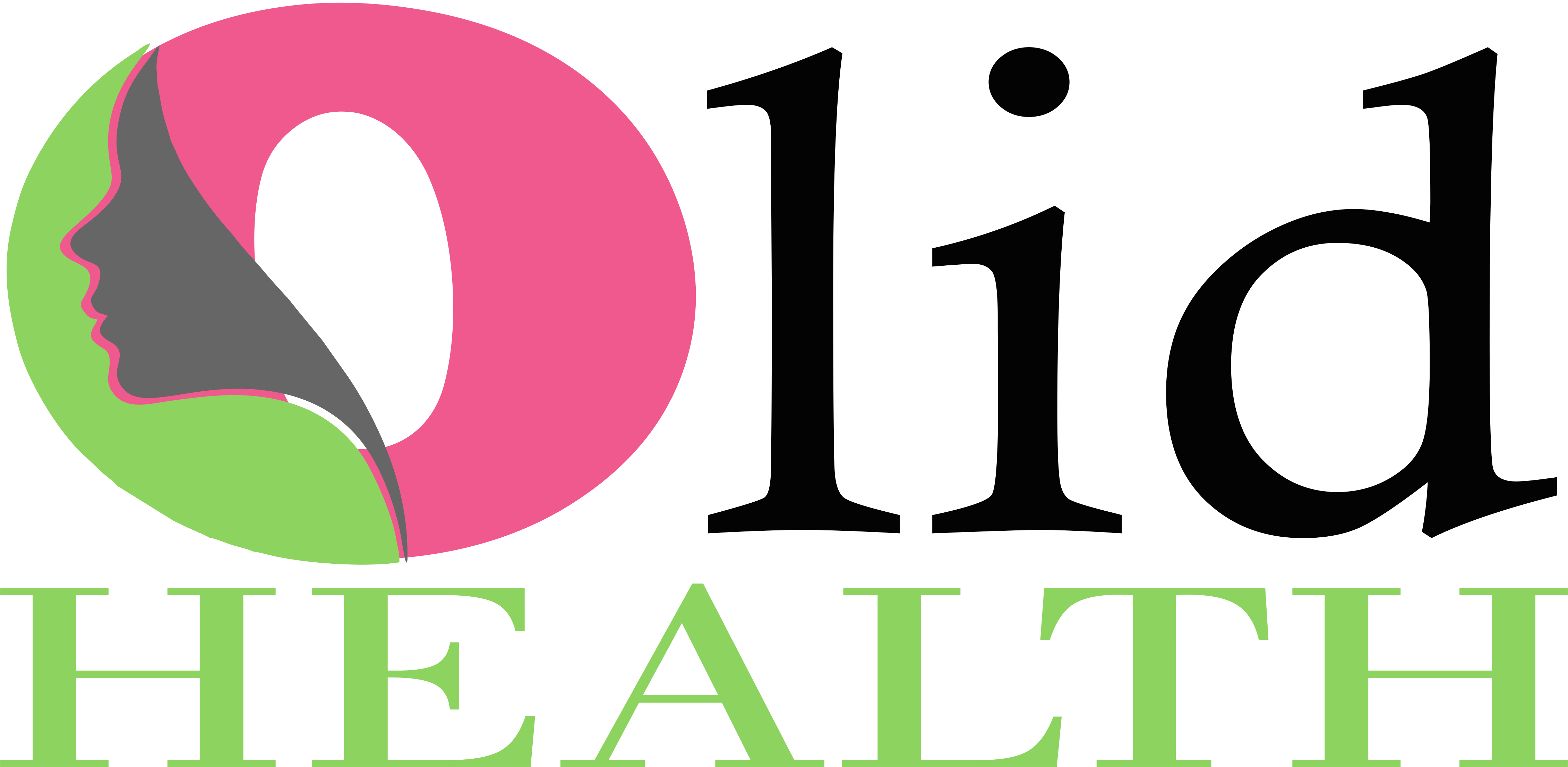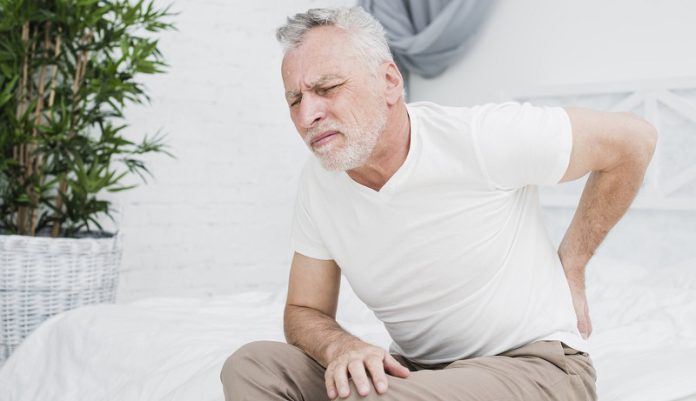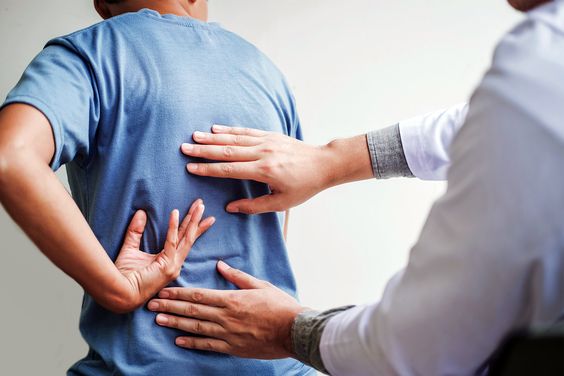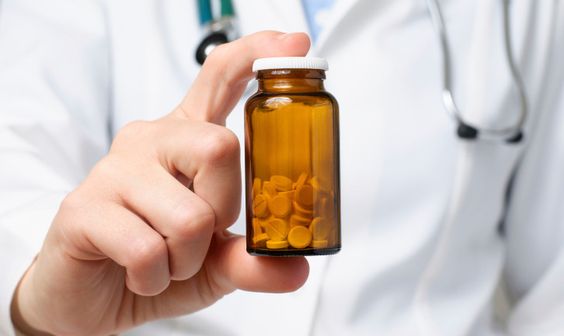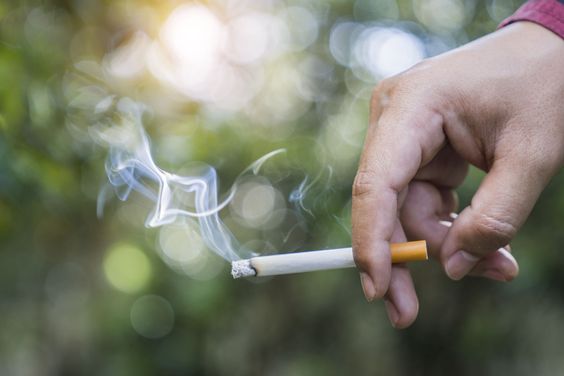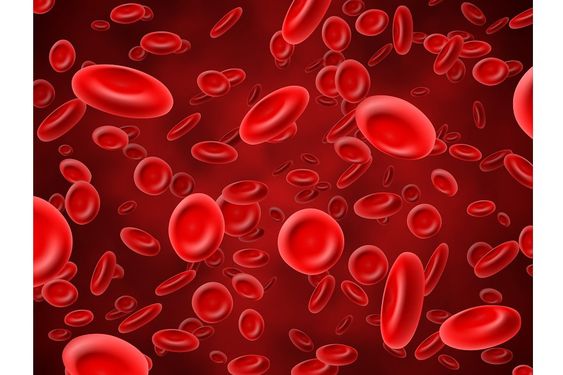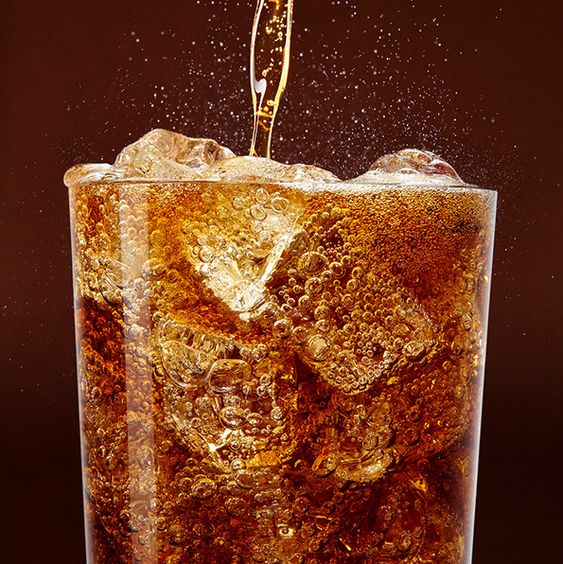Olidhealth.com – This bone disease may commonly affect in later ages, but the preventive step is also needed in the 20s and 30s. Moreover, its also potentially happen in women since they give birth and share their calcium deposit with their baby. How to prevent osteoporosis is with consume a lot of calcium-risk food like milk and cheese. However, it is enough to prevent it? If you have potentially had osteoporosis risk, how to reduce its development? There is a beneficial tip for you to reduce or prevent osteoporosis risk. Keep reading this article to know how to reduce or prevent this disease.
What Is Osteoporosis
Generally, Osteoporosis is a bone-related disease that commonly occurs in the elderly [1]. This disease literally creates a ‘hole’ in the bone and makes it so brittle to get fracture easily. Moreover, People in their 40s also may have this disease if they have a bad lifestyle such as an unbalanced diet or lack of exercise. This disease is also known as a silent disease since its presence is undetectable and preventive measurements in the early 20s or 30s could reduce this disease to develop at later ages [2].
The Risk Factor That People Could Get Osteoporosis
In the first place, People who lack calcium deposits within their bones may have a higher risk of osteoporosis at later ages. As time goes by, the bone density gradually decreases. Once you have a bone fracture, it will have slow recovery and be susceptible to having it again. There are also other risk factors that may increase osteoporosis such as [1]:
- Women with a lot of children
- Elderly who have 65 or 70 years old
- High alcohol consumption
- Have calcium deficiency
- Low vitamin D levels within the body
- Smoker
- Low body mass
- having certain medication
- Lack of physical movement or have immobilization, etc
How To Reduce Or Prevent Osteoporosis
Osteoporosis is one of the common worldwide problems for older people. However, we should do preventive measures to reduce or prevent it happen at later ages. There are some beneficial tips for people in their 20s or 30s to get prepared before it’s too late.
Keep Active and Do More Physical Exercise
Physical exercise could reduce the risk of osteoporosis. Moreover, younger people have more energy to do some activity. For instance, running and jogging is early step to have a fine body. Strengthening muscle along with increased bone density is a good asset for later ages.
People in their 30s also should have one or two exercise habits to promote their health and preserve their bone health. Some beneficial exercises like cycling, swimming, or weight lifting are also good as an alternative physical routine. Furthermore, indoor activities like yoga and aerobic practice are better choices if you don’t have enough free time or you are awkward with outdoor activities. Moreover, aerobic with weight-bearing support could have high benefits than just walking, based on research in 2018 [3].
There are tips if you are in your 50s or later. Getting simple exercise like brisk walking is enough to help strengthen the bone. However, keep monitoring with younger people and avoid heavy physical activity that could fracture your bone.
Consuming More Calcium-based Food
Load up your bone with adequate calcium since it’s an essential mineral for building bone and keeping up bone density. Moreover, calcium is also needed in several metabolisms to reduce bad cholesterol and regulate blood pressure. The recommended amount of calcium intake is 1000 mg per day for adults and 1200 mg per day for the 50s or later according to the United States Department of Agricultural (USDA) [4].
Pregnant women may have a higher risk of osteoporosis since they give some calcium deposits within the backbone of the fetus [5]. Consuming a high amount of calcium-rich food could maintain calcium levels in the mother and baby.
Dairy foods such as milk, eggs, cheese, or yogurt are the best sources of calcium. If your want to try something else, green leafy vegetables and soy products also have a good amount of calcium to build up better bone health.
Careful To Take Certain Medication
Some medications may induce osteoporosis risk because they lead to decrease bone mass and density. For example, medication for epilepsy could have reduced bone density effects as well as glucocorticoids and thiazolidinediones [6]. In some cases, doctors couldn’t be aware side effects of certain medications. We suggest double-checking with your doctor if having medication that affects another medication.
Limiting Caffeine Intake
Coffee is widely used as an analgesic and pain killer for certain diseases like headaches. Moreover, it contains caffeine that helps to enhance brain function and reduce body mass. However, high consumption of caffeinated drinks may reduce bone density and lead to osteoporosis [7]. Some studies found that consuming coffee may alleviate the risk of this disease but it is still questionable since it is also related to a lack of calcium that is not too high.
We recommended limiting caffeine intake to a moderate amount and increasing calcium intake while on it to reduce osteoporosis risk [8]. Lowering coffee intake for bone health is reasonable since you need your backbone to remain healthy to do some physical activity.
Reducing Smoking or Secondhand Smoke
Smoking is may related to other bad lifestyles such as alcohol abuse or uncontrollable coffee consumption. We are sorry to mention that this habit also could reduce bone density gradually. It may affect directly vitamin D but smokers have lower vitamin D levels in their blood [9]. It indicates that it would affect decreased calcium absorption and make the bone brittle easily.
In other research, smoking tobacco in first and second-hand smokers has lower bone density than non-smokers. Moreover, women have higher bone loss caused by smoke than men [10]. Reducing or quitting smoking is a good step to maintain bone health. It is hard at first but your body will thank your decision to regain its best performance.
Sunbathing To Get Enough Vitamin D
Besides calcium that important to promote bone health, vitamin D is also important to keep your bone healthy. Moreover, Vitamin D is used to aid proper calcium absorption. Furthermore, Low vitamin D and calcium intake lead to bone fracture and elevated osteoporosis risk based on a study in 2020 [11].
How to get enough vitamin D for preventing osteoporosis? All you can do is sunbathe or do outdoor physical activity. We can absorb sunlight (especially exposure with UVB) and converse it into vitamin D. However, we should know what time to do it right. Based on research in 2013, the time between 10 a.m. – 2 p.m. is the best efficient way to absorb UVB. Taking it 30 minutes every day is enough to get adequate vitamin D [12]. Taking sunlight exposure too long also has a bad effect and could cause sunburn.
If you don’t get sunlight caused by your strict work time. Don’t worry about it, vitamin D also comes in supplement form and consume with a fair amount to keep up your vitamin D level to prevent osteoporosis.
Control Iron Level If Necessary
Iron is usually used as a component in red blood formation. However, this mineral also helps to make collagen and build up the bone. If you have iron deficiency, you may have anemia, and your bone is also more like to lose partially [13]. To solve this problem, consuming high iron food like meat and fish or anemia medication may help to regain red blood levels.
To high iron within your blood is also bad for your bone and may lead to osteoporosis if don’t treat well. Eat some grain, nuts, or seeds to lower iron levels. Control your iron level may have a beneficial effect to preserve bone health are reduce the risk of osteoporosis at later ages.
Reduce Alcohol Consumption
If you are a heavy drinker and have a high risk of osteoporosis, you should be considered lowering your alcohol intake. testosterone and estrogen levels in both men and females could be dropped by alcohol consumption and could affect bone formation. Moreover, a high level of alcohol within blood vessels could disturb vitamin D to absorb calcium [14].
It is not late to change your daily life with limited alcohol intake and increasing consume nutritious food. Anyhow, alcohol isn’t just could increase the risk of osteoporosis. Other diseases like alcoholic fatty liver disease and kidney failure also could happen. Reducing its consumption may improve your life better.
Special Treatment and Therapy For People With Osteoporosis
In some cases, there are deficiencies and disorders that affect bone health. Moreover, you could overcome this problem with some therapy to level up your bone strength and prevent osteoporosis [15]. How to prevent osteoporosis with this therapy? Well, certain prescribed medication may be needed. For example, low Testosterone hormone could brittle the bone. To fix this, the doctor may suggest you take testosterone therapy to control the hormone within your body. The testosterone may be injected, oral, or apply to your skin. Other treatments and therapy to reduce osteoporosis risk are shown below:
- Denosumab medication – One of the osteoporosis treatments to slow down bone fracture. Generally, The injection takes two times a year to ensure bone strength. However, the risk of osteoporosis gradually increases if you stopped this treatment.
- Estrogen hormone therapy – Irregular menopause period is signed to lack of estrogen. It leads to bone fracture since estrogen is essential to bone formation. This therapy could enhance estrogen hormone production and bring backbone density. Despite it also could treat a certain condition, this therapy can be used for women under 60 years old who have the potential risk of osteoporosis [15].
- Bisphosphonates medication – It same effect as denosumab to reduce breakdown bone and promote bone density. While taking this therapy, consume vitamin D supplements and calcium-rich food to boost bone health. However, be mindful to take this treatment with your doctor since it may have the opposite effect in long-term therapy [16].
- Parathyroid hormone therapy – If you have osteoporosis, this kind of therapy may help you to reduce its symptom. Moreover, it also could regain your bone density because it could stimulate bone formation. A study in 2013 found that this therapy is good to reduce the bone fracture. However, its effectiveness gradually decreased in a certain amount of time [17].
There are also other therapy like Strontium Ranelate, romosozumab, and teriparatide therapy to treat osteoporosis disease. However, this therapy and treatment also come with side effects and it is not 100% safe for certain ages [1]. Call your doctor and discuss these to reduce the risk of osteoporosis at a later time.
Be Careful With Carbonated Drink
Carbonated beverages are commonly linked to bone fracture or osteoporosis. Well, it is actually true but still, it needs a medical approach to claim this matter. The carbonated drink contains phosphoric acid that is responsible for decreased bone density. Moreover, phosphoric acid and other ingredients like synthetic sugar could slow bone formation [18].
In some cases, colas also contribute to damage bone by its caffeine compound. Furthermore, Women also have high reduction bone density effect than men [19]. So, women who like to consume this beverage should consider limiting this consumption for preventing osteoporosis happen at a later time.
Conclusion
Osteoporosis is a silent disease that could affect everyone and leave unnoticed. As time goes on, it could be worse and make bone fracture in the critical time. Before it happens, you can prevent it with some beneficial tips that remain your body to keep healthy. Outdoor physical activity and consuming enough calcium foods are how to retain your bone density that may help you to prevent it.
Moreover, If you are an older person at risk of osteoporosis, a little exercise like brisk walking is good enough. However, if necessary, take some medication and therapy to slow down the progression of osteoporosis. Check your bone condition to the doctor could help maintain your body in an optimal state.
Reference
[1] https://www.ncbi.nlm.nih.gov/pmc/articles/PMC6059859/ – Osteoporosis in general with diagnosis and treatment.
[2] https://www.bones.nih.gov/health-info/bone/osteoporosis – Explanation about osteoporosis.
[3] https://www.ncbi.nlm.nih.gov/pmc/articles/PMC6323511/ – Physical practice for patients who have the risk of osteoporosis.
[4] https://www.ars.usda.gov/news-events/news/research-news/2007/calcium-requirements-may-be-overestimated/ – Calcium intake recommendation by USDA.
[5] https://www.ncbi.nlm.nih.gov/pmc/articles/PMC6683260/ – Calcium supplement for pregnant women and its general benefit for bone health.
[6] https://www.ncbi.nlm.nih.gov/pmc/articles/PMC4206646/ – Certain medications that could elevate osteoporosis risk.
[7] https://pubmed.ncbi.nlm.nih.gov/1609631/ – High caffeine consumption related to osteoporosis risk.
[8] https://www.ncbi.nlm.nih.gov/pmc/articles/PMC3912260/ – Relation about coffee consumption and osteoporosis.
[9] https://pubmed.ncbi.nlm.nih.gov/26773985/ – Vitamin D, smoking, and its relation to depression.
[10] https://www.hindawi.com/journals/jos/2018/1206235/ – Smoking could reduce bone density and lead to bone fracture.
[11] https://journals.plos.org/plosone/article?id=10.1371/journal.pone.0235042 – Osteoporosis risk caused by low calcium and vitamin D level within American people.
[12] https://www.ncbi.nlm.nih.gov/pmc/articles/PMC3897596/ – Proper time to get vitamin D from sunlight.
[13] https://www.ncbi.nlm.nih.gov/pmc/articles/PMC4425147/ – How iron deficiency may lead to osteoporosis.
[14] https://www.bones.nih.gov/health-info/bone/osteoporosis/conditions-behaviors/alcoholism – Alcohol effect on vitamin D and osteoporosis development.
[15] https://www.betterhealth.vic.gov.au/health/conditionsandtreatments/osteoporosis – Osteoporosis treatment and prevention.
[16] https://www.ncbi.nlm.nih.gov/pmc/articles/PMC2704135/ – Bisphosphonates therapy effect for treat osteoporosis.
[17] https://www.ncbi.nlm.nih.gov/pmc/articles/PMC3874264/ – Parathyroid hormone therapy for osteoporosis treatment.
[18] https://www.ncbi.nlm.nih.gov/pmc/articles/PMC7071508/ – Soft drinks with carbonated could have less benefit for bone health and increase bone fracture risk.
[19] https://pubmed.ncbi.nlm.nih.gov/17023723/ – Cola side effect that could decrease bone density.

